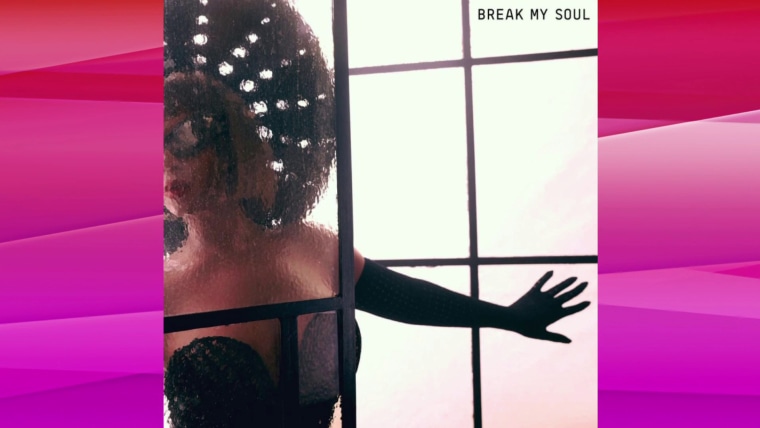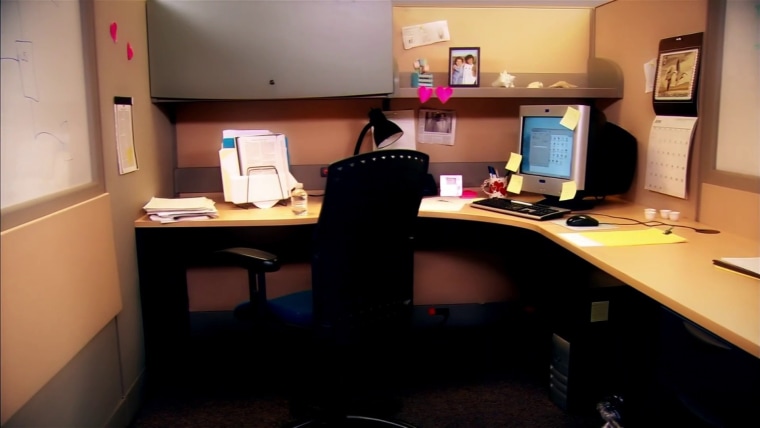Is Beyoncé’s ‘Break My Soul’ the anti-hustle anthem America needs?

[ad_1]
We’re facing a grim reality these days: Conservatives are hell-bent on eroding democracy one Supreme Court ruling at a time. Gas prices are sky high. Airline travel is as bad as it has ever been. We’re probably nearing a recession. Oh, and in case you forgot, people are still dying from Covid-19. Everything feels heartbreaking right now, so where, if anywhere, can we turn?
The answer apparently is Beyoncé.
“Break My Soul,” her first solo single in six years, samples Robin S’ 1993 hit “Show Me Love” and intertwines thumping, vibrating house music with lyrics that have already penetrated our lexicon less than a week after its Monday release.
In a world where chronic stress causes Black people to develop heart diseases at higher rates, rest is essential to our literal livelihood.
As is always the case after Beyoncé releases new music, there’s been an instant quest for meaning, a desire to understand her artist’s psyche. But this time, it feels more appropriate to investigate our own responses to “Break My Soul” — why it touches us so deeply and has us all considering a reality far different than the one we’re living. (This applies in the spiritual and literal sense; people have quit their jobs after listening to Beyoncé sing “Now, I just fell in love / And I just quit my job / I’m gonna find new drive / Damn, they work me so damn hard / Work by 9 / Then off past 5 / And they work my nerves / That’s why I cannot sleep at night.”)
Rather than assuming Beyoncé magically predicted the great resignation and our growing discontent toward work, we should interrogate the reasons we’ve reacted so strongly to a simple sentiment: Work shouldn’t be the axis around which our entire world rotates around. Survival shouldn’t be dependent upon how much effort and time we invest in our jobs.
The core American belief that our value is intrinsically linked to an ability to create, to produce, to work hard, is costing us everything, and this especially applies to Black people in America. In some ways, “Break My Soul” owes its prescient message to The Nap Ministry, an organization Tricia Hersey created in 2016 to encourage Black people to think about rest as a form of resistance and reparations. This and similarly modeled organizations, such as Therapy for Black Girls, embody feminist thinker Audre Lorde’s idea that self-care is a cornerstone of survival. Or, as Hersey told The Washington Post, “We believe rest [is] a form of social justice and a form of resistance in a capitalist space.”
Beyoncé, who is worth hundreds of millions of dollars, hasn’t worked a traditional nine-to-five job in decades. She’s been famous her entire adult life and has the entire world — and its resources — at her disposal. So no, she’s not a patron saint for the working class.
In fact, Beyoncé has long epitomized our culture of overwork. She outworked her peers, releasing a new album nearly every three years for much of her career, relentlessly toured the world, and, as former first lady Michelle Obama famously said, constantly raised the bar for us all. She’s performed sick and when the weather didn’t hold up, because that’s what artists, especially those of her caliber, are expected to do.
The core American belief that our value is intrinsically linked to an ability to create, to produce, to work hard, is costing us everything.
But now, at age 40 with a husband and three children, there’s a different mandate for one of the biggest artists in the world. She can take six years off from releasing solo music to pursue other things, including a collaborative album with Jay-Z, a thriving clothing line and an enviable yacht trip with her family and closest friends. Everything happens when she wants it to — and not a minute sooner. It’s her form of freedom.
And many of us are seeking to define our own freedom for ourselves. Capitalism steals so much from us. The system requires us to work ourselves into the ground for little reward, financial or otherwise. As Anne Helen Petersen captures in her 2020 book, “Can’t Even: How Millennials Became the Burnout Generation,” we’re incentivized to spend the time we’re not working figuring out how to become better, more efficient workers at the expense of our leisure. We’re encouraged to monetize our hobbies, to turn even our smallest pleasures into another income stream. And, during the pandemic, we’ve watched companies force workers back into the office, no matter the risk to their health.
As we’ve watched inflation transform an already precarious situation for many Americans into a dire one, it has become clearer that investing our entire selves (our souls?) into companies that we don’t own doesn’t benefit us in any way.
In a perfect world, we would live in societies that create the infrastructures necessary to support a workforce that gives priority to its workers above all else. In this society, primary schools would be well funded and those interested in pursuing higher education wouldn’t graduate with crushing debt that threatens their earning ability. Health insurance would be decoupled from employment, so all citizens, no matter their job status, could receive affordable medical care. Housing would be better regulated so price gouging wouldn’t drive people out of their homes and onto the streets.
When we’re prioritizing work above resting, ignoring our bodies’ cues and the things in our life that bring us joy, we’re doing ourselves a dire disservice that’s sometimes irreparable. In a world where chronic stress causes Black people to develop heart diseases at higher rates, rest is essential to our literal livelihood.
Most of us can’t afford to follow Beyoncé’s blueprint. We can’t resign from our jobs at a whim and expect to land on our feet. But, as we consider a new world where balance is possible, we now have a mantra that can remind us that there’s still a whole life outside of work — if only we have the time to figure it out. And as Hersey so aptly points out, rest is our mandate; sometimes, in fact, it’s the only resistance we have.
[ad_2]
Source link


